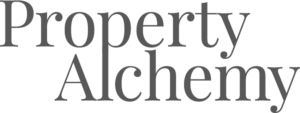In Australia, over 65 per cent of buyers purchase their property in their own name. But other ownership structures may be suitable for you, depending on your intentions with the property investments and how it fits into your wider portfolio. Below, we outline a few different property ownership structures and when each structure may be suitable.
Individual
The simplest ownership structure for a property is owning the asset as an individual. This means you buy the property in your name. For a property that is your main residence, buying it in your name can be beneficial as you’ll be eligible for the capital gains tax exemption. Getting finance for a property purchased in your name is also straightforward as you can use payslips and tax returns as your proof of income. On the downside, buying a property in your name doesn’t offer asset protection if you are personally sued.
Company
A company structure is a good option for property developers or full-time property investors. As a separate legal entity, the company is run by the appointed directors and owned by shareholders. Under this structure, the property and mortgage would be under the company name. Income will be taxed at 27.5 per cent for small companies with turnover below $50 million.
You get increased asset protection under a company structure, but you don’t have access to the capital gains tax discount. If you don’t intend to hold your properties for a long time, a company structure may not be worth the time and cost to establish and maintain.
Trusts
Trusts are a popular option amongst property investors. The most common trusts used by property investors are a family trust or a unit trust. Similar to a company structure, a unit trust gives you a defined interest in the trust, so your profit from the property will be the same as your ownership within the trust. Unit trusts can be a good option for unrelated parties investing in property.
A family trust differs slightly. It doesn’t have defined unit holders, providing flexibility and asset protection. The complexity of your trust structure may impact how much you can borrow, so you need to speak to your accountant about this when you apply for finance.
Joint Venture
If you have an end date for your property investment, a joint venture can be a good option. This is a more common structure for developments as in a joint venture the parties share in the proceeds, not just the profit. For example, each party may own adjacent blocks of land, and the proceeds will be the property that is built on the land.
This article is for general information purposes only. There’s no one size fits all when it comes to property ownership structures. Make sure you speak to your accountant for tailored advice about structuring your property investments and how different ownership structures affect your tax obligations.
If you are looking to purchase, we can refer specialists real estate accountants to help guide you through the process and work out the best strucutre for you.

